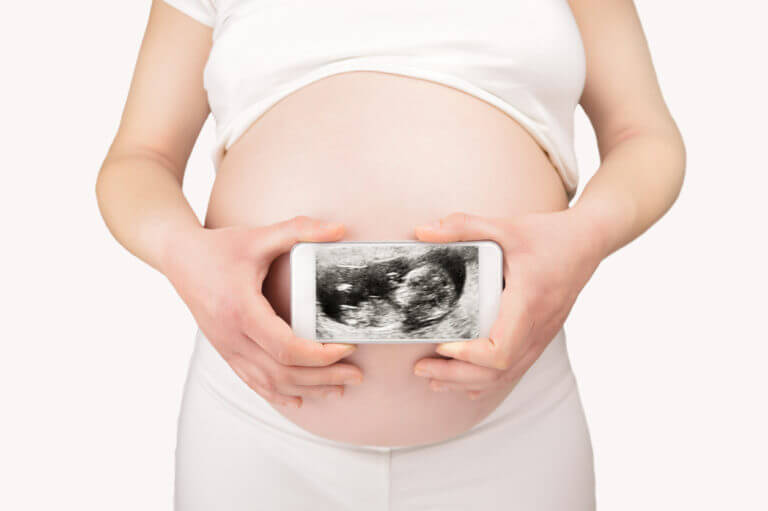
A majority of pregnancies go smoothly and without complications, but sometimes women experience what is referred to as a high-risk pregnancy. A pregnancy is considered high-risk when there is an increased risk of health problems that could affect the mother and/or her baby before, during, or after delivery.
Sometimes a woman has a high-risk pregnancy if she has a pre-existing medical condition that could cause an issue. In other cases, a medical condition may develop during pregnancy for either the mother or her baby, causing the pregnancy to become high-risk.
High-risk pregnancies demand oversight by a maternal and fetal medicine team to help ensure the best outcome for the mother and her baby. Let’s talk about some of the main reasons why a pregnant woman may be at high risk of complications, and who you can talk to about having a healthy pregnancy and a healthy baby.
Risk Factors for a High-Risk Pregnancy
There are different factors that can contribute to a high-risk pregnancy, which can include:
Maternal Age
Pregnancy risks can increase in mothers-to-be who are over age 35 or under 17. Women over 35 have an increased risk of miscarriage, high blood pressure, preeclampsia, multiple births, and gestational diabetes. Plus, the baby is more likely to have birth abnormalities or genetic defects. If the woman is over 40, there is an even higher risk of miscarriage and genetic defects.
Teens who are pregnant appear to be at greater risk of complications such as premature birth, high blood pressure, anemia, and giving birth to a baby who has a low birth weight. There is also a higher risk of postpartum depression in teenage mothers, largely because they are still developing themselves, both physically and emotionally. Full development doesn’t occur until the early 20s.
Maternal Health Problems
Maternal health conditions that exist prior to pregnancy can present risks for the mother and/or her unborn baby. This can include:
- High blood pressure
- Obesity
- Diabetes
- Epilepsy
- Thyroid disease
- Heart disorders
- Blood disorders
- Lung issues
- Kidney problems
- Poorly controlled asthma
- Sexually transmitted disease (STD)
- Autoimmune disorders
- Infections
Complications During Pregnancy
Risks during pregnancy are higher for women who are carrying twins or higher-order multiples. There are also various complications that can develop during pregnancy that can pose risks, such as an abnormal placenta position and fetal growth restriction.
Another issue that can occur is rhesus (Rh) sensitization, which can happen if the mother’s blood type is Rh-negative (O-, A-, B-, or AB-) and the baby’s blood type is Rh-positive. This creates a potentially serious condition that can be treated by your doctor so that your body does not create antibodies to the baby’s blood. Your OB/GYN will administer RhoGAM shots so that your body does not manufacture the antibodies.
Common Pregnancy-Related Medical Conditions
Some medical conditions can occur during pregnancy even if the mother is healthy when she becomes pregnant. Two of the more common pregnancy-related conditions are:
- Preeclampsia, which is a condition that includes high blood pressure, high levels of urinary protein, and swelling caused by fluid retention. It can be a dangerous or even fatal condition for the mother or baby if left untreated; but with proper management by a doctor, most women who develop preeclampsia have healthy babies.
- Gestational diabetes, which is a type of diabetes that develops during pregnancy and causes the mother’s blood sugar levels to become too high. It requires treatment in order to keep the mother and her baby healthy during the pregnancy and delivery, and the treatment may include exercise, dietary changes, and medication to keep blood sugar levels under control. Gestational diabetes usually resolves after delivery, but women with the condition are at an increased risk of developing type 2 diabetes.
Maternal and Fetal Medicine in Syracuse
If you are pregnant or are trying to become pregnant, partner with the maternal and fetal medicine team at University OB/GYN Associates for comprehensive medical care here in Syracuse. Our Regional Perinatal Center at Upstate is the only high-risk obstetrics service in central New York.
For more information about our services or to schedule an appointment, contact us today at (315) 464-5162 or call the Regional Perinatal Center for high-risk obstetric care at (315) 464-4458. We look forward to helping you have a healthy pregnancy and a healthy baby!



